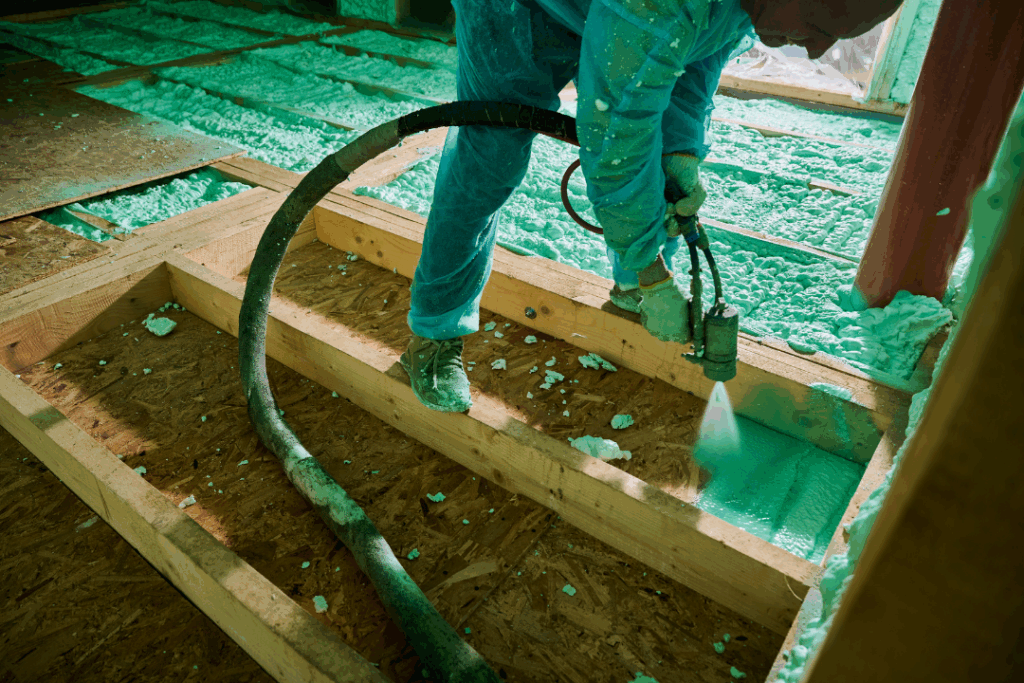
Can You Hear That? How Insulation Affects Soundproofing
You’re finally winding down for the night—and just as you settle into bed, you hear it. The dog next door. The lawn mower across the street. Your kids upstairs acting like they’re in a marching band. If that sounds familiar, you’re not alone. While most people think of insulation as something that keeps a house warm or cool, it actually plays a big role in how quiet (or noisy) your home feels.
Let’s talk about how soundproof insulation works, where it matters most, and how you can make your home a whole lot more peaceful—without gutting your walls or breaking the bank.
The Link Between Insulation and Sound
Not all insulation is designed to reduce noise, but the right kind can make a noticeable difference. Sound travels through air and solid materials, and insulation works by absorbing, dampening, or blocking those sound waves. While traditional insulation focuses on thermal resistance, some materials also help reduce airborne and impact noise.
So, what makes soundproof insulation different? It’s not just about stuffing your walls with extra material. True sound-dampening insulation is denser and often made of materials like mineral wool, cellulose, or specially formulated fiberglass that absorb sound more effectively than standard types.
Where Soundproof Insulation Matters Most
Every house has its noise trouble zones. Here’s where soundproof insulation can really make a difference:
- Interior walls: Especially between bedrooms, offices, and bathrooms
- Floors and ceilings: To muffle footsteps, music, or movement from above
- Basement ceilings: Great for homes with in-law suites or rec rooms below main living areas
- Exterior walls: To block traffic, lawn equipment, or barking dogs from entering your quiet space
Not every area needs sound insulation, but treating the loudest rooms—or the ones where quiet matters most—can dramatically change your experience at home.
Types of Soundproof Insulation
Not all insulation materials are created equal when it comes to noise control. Here are the most common types used for soundproofing:
1. Mineral Wool (Rock Wool)
- Denser than fiberglass
- Excellent at both thermal and sound insulation
- Fire-resistant and moisture-resistant
2. Blown-In Cellulose
- Great for retrofits or attic floors
- Absorbs sound well due to its dense, loose-fill texture
3. Acoustic Fiberglass Batts
- Designed specifically for sound control
- Easy to install between studs, joists, or rafters
4. Spray Foam Insulation
- Provides air sealing and some noise reduction
- Better at blocking air-borne sound than impact noise
The best soundproof insulation for your home depends on the structure, existing materials, and your noise concerns. In many cases, combining sound-dampening insulation with resilient channels, soundproof drywall, or acoustic sealant offers the best results.
Bonus Benefits of Soundproofing
Reducing noise isn’t just about comfort—it can also improve:
- Sleep quality: Fewer interruptions from outside noise or family members
- Focus and productivity: Perfect for home offices or remote work setups
- Privacy: Keeps conversations contained in bedrooms, bathrooms, and shared spaces
- Resale value: Buyers love the added luxury of quiet, especially in busy neighborhoods
Many homeowners don’t realize how noisy their homes are until they fix the problem—and suddenly enjoy a level of peace they didn’t think was possible.
DIY vs. Professional Soundproofing
Installing soundproof insulation can be a DIY-friendly project if you’re working with open walls or unfinished spaces like attics or basements. However, for fully finished rooms or more advanced setups, it’s smart to work with a professional who can recommend the right materials, installation techniques, and supplemental soundproofing tools.
Pros can also assess whether your noise problems are coming from air gaps, structural vibration, or thin building materials—and tailor the solution accordingly.
How to Know If You Need Soundproofing
Here are a few signs your home could benefit from added sound insulation:
- You can hear every word of a conversation in the next room
- Footsteps, TVs, or flushing toilets travel easily between floors
- Outdoor noise is clearly audible indoors—even with windows closed
- You’re building or renovating and want to plan for long-term comfort
Whether you’re upgrading an existing home or planning a new build, adding soundproof insulation early is a smart move that pays off daily.
Ready to Enjoy a Quieter Home?
Your home should be your escape from the outside world—not a place where every sound echoes through the walls. With the right soundproof insulation in the right places, you can create a more peaceful, private, and comfortable space for your whole family.
If you’re ready to turn down the noise, reach out to a local insulation expert at Attic Nerds today to explore your options. Whether you’re renovating, building, or just trying to sleep better, the right solution is closer—and quieter—than you think.
